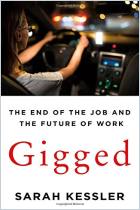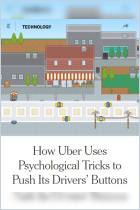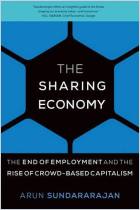
A review of
The review below was first published in the getAbstract Journal on Sep 21, 2021.
We’ve reviewed this title for you as we currently cannot offer a summary.
We’ve reviewed this title for you as we currently cannot offer a summary.
Uber Exploits
by David Meyer
Data researcher Alex Rosenblat examines Uber’s claims of enabling drivers/entrepreneurs and discovers the dark economic truths underlying its worldwide success.
Learners who read this also read
Book
Book
Book
Book

















Comment on this review or Start Discussion